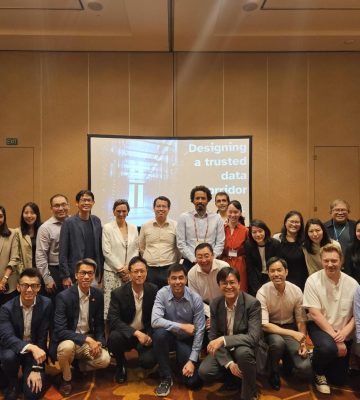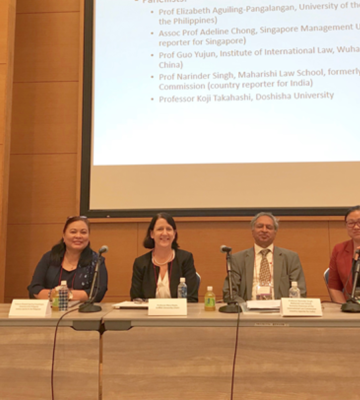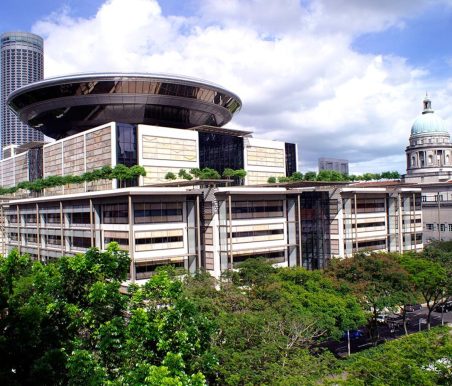ABLI is alerted by China Justice Observer to a new case where a Chinese court recognised a judgment by the Singapore High Court. To our knowledge (taking into account the limited reporting of Chinese judgments), this is the second time that a Singapore court judgment has been recognised in China, and the first after the signing of the Memorandum of Guidance between the Supreme People’s Court of the People’s Republic of China and the Supreme Court of Singapore on Recognition and Enforcement of Money Judgments in Commercial Cases (MOG).
In Oceanside Development Group Ltd. v. Chen Tongkao & Chen Xiudan ((2017) Zhe 03 Xie Wai Ren No. 7), the Wenzhou Intermediate People’s Court in China’s Zhejiang Province rendered a civil ruling to recognise civil judgment (S139/2012) by the High Court of Singapore.
The case before the Singapore court was an equity transfer dispute where the judgment debtors, two Chinese nationals, were sued for not paying GBP 2.5 million for share buy-back to the judgment creditor. The judgment debtors then failed to appear before the Singapore court on the scheduled hearing date on 1 February 2013. The court agreed that the judgment debtors could still respond to the case provided that a bank guarantee of GBP 2.5 million or a payment of the equivalent amount in Singapore dollar was made to the Court before 4 pm on the 15th of the same month. As the judgment debtors did not comply with the payment order, a default judgment to the tune of GBP 2.5 million (plus interest and other fees) was entered against them.
The judgment creditor then sought recognition of the Singapore judgment in China after the enforcement of the judgment only recovered a small portion of the GBP 2.5 million owed given limited assets the two individuals held in Singapore.
In its judgement dated 2 August 2019, the Wenzhou Intermediate People’s Court noted that the Singapore judgment had already taken effect as evidenced by the enforcement against a property owned by the judgment debtors in Singapore. The two individuals then argued, among others, that their equal litigation rights (and thus China’s public policy) were infringed upon because they were required to put up a large sum within a relatively short period of time and because the Singapore judgment was very brief (in fact, no substantive hearing was conducted). The Wenzhou Intermediate People’s Court refuted this argument as the Singapore court duly followed Singapore law in these aspects.
What’s particularly interesting about this Wenzhou judgement is that the judgment creditor only requested for recognition of a foreign judgment. In addition, the judgment mentioned neither the MOG nor the Kolmar case where for the first time a Singapore judgment has been recognised in China. It thus remains to be seen how the issue of reciprocity between China and Singapore in terms of recognition and enforcement of each other’s judgments will be dealt with by other courts in China and whether the MOG will be explicitly relied upon as one form of established reciprocity.
The full text of the Chinese court judgment is available here on the official judgment portal of the Supreme People’s Court of China.
We are unfortunately unable to obtain the Singapore judgment that is recognised. It is most likely an unreported judgment.
Whilst every effort has been made to ensure that the information contained in this update is correct, the Asian Business Law Institute disclaims all liability and responsibility for any error or omission in this update, and in respect of anything, or the consequences of anything, done or omitted to be done by any person in reliance, whether wholly or partially, upon the whole or any part of the contents of this update.


![[Op-ed] Transferring Personal Data [Op-ed] Transferring Personal Data](https://abli.asia/wp-content/uploads/elementor/thumbs/Op-ed-Transferring-Personal-Data-r77ahf861of9cb6xxrxguks6yd3ps8ds0o5ldoy1sw.jpg)



